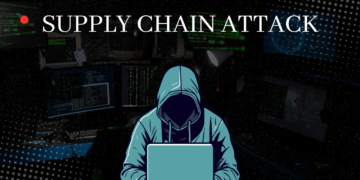
In today’s digital world, cybersecurity is more crucial than ever. However, there’s a growing issue that businesses are facing: the security talent shortage. With cyber threats becoming increasingly sophisticated, organisations are struggling to find skilled professionals who can effectively safeguard their systems. This gap in talent is not only putting companies at risk but also making it harder to keep up with the rapid advancements in cybercrime tactics.
What is the Security Talent Shortage?
The cybersecurity skills gap refers to the insufficient number of qualified professionals available to meet the growing demand for cybersecurity experts. As cyber threats become more advanced, organisations require skilled personnel to protect sensitive data and maintain secure networks. Unfortunately, the supply of cybersecurity professionals has not kept pace with the demand, leaving businesses vulnerable to attacks.
In the UK, the shortage is particularly severe. According to industry reports, a significant percentage of companies have struggled to fill cybersecurity roles in recent years
World Economic Forum. This shortage affects all levels of cybersecurity positions, from entry-level roles to senior management.
Why is There a Security Talent Shortage?
Several factors contribute to the cybersecurity talent shortage:
- Rapidly Evolving Threats: Cyber threats are constantly changing, making it difficult for security professionals to stay ahead. Attackers are becoming more sophisticated, using AI and machine learning to launch more targeted and effective attacks. This requires highly specialised knowledge that many existing professionals may not have.
- Increased Demand for Cybersecurity Expertise: With the rise of cloud computing, IoT (Internet of Things), and remote work, organisations are more vulnerable to attacks. As a result, the demand for cybersecurity experts has skyrocketed, outpacing the number of trained professionals.
- Skill Gaps in the Workforce: Cybersecurity requires a deep understanding of various technologies and systems. Many professionals who enter the field lack the advanced skills needed to handle modern threats, leading to a significant skills gap.
- Attraction and Retention Challenges: The cybersecurity field is competitive, with organisations offering attractive salaries and benefits to attract top talent. However, many professionals are lured away by better opportunities or burnout from the high-pressure nature of the job, making retention a major issue.
The Impact of the Talent Shortage
The shortage of cybersecurity talent has far-reaching consequences for businesses:
- Increased Vulnerability to Attacks: Without enough skilled professionals, companies are at a higher risk of cyberattacks. Cybercriminals often target organisations with inadequate security teams, knowing they are more likely to succeed in exploiting vulnerabilities.
- Slower Response Times: Inadequate staffing means that when a cyberattack does occur, it may take longer for businesses to respond. This can lead to more damage, higher recovery costs, and more significant disruptions to operations.
- Higher Costs: To attract qualified candidates, businesses may have to offer higher salaries or invest heavily in training existing employees. These costs can be substantial, especially for small and medium-sized enterprises.
Solving the Cybersecurity Talent Shortage
Addressing the cybersecurity talent shortage requires a multi-pronged approach:
- Upskilling the Existing Workforce: Companies can invest in training programmes to help their current employees develop the skills needed to handle modern cybersecurity challenges. This is a cost-effective way to bridge the talent gap.
- Collaboration with Educational Institutions: Partnering with universities and training providers to create specialised cybersecurity programmes can help ensure that graduates are well-prepared for the workforce. This helps increase the pool of qualified candidates entering the job market.
- Attracting a Diverse Talent Pool: By broadening recruitment efforts and encouraging individuals from underrepresented groups to pursue careers in cybersecurity, businesses can help reduce the skills gap and bring in fresh perspectives to tackle complex security issues.
- Adopting Automation and AI: To alleviate some of the pressure on human resources, organisations can integrate AI-based security tools to help detect and respond to threats faster. While AI cannot replace human expertise, it can complement the work of security professionals by automating routine tasks.
Conclusion
The cybersecurity talent shortage is a pressing issue that businesses cannot afford to ignore. As the cyber threat landscape continues to evolve, the need for skilled security professionals becomes even more critical. By investing in training, fostering collaboration with educational institutions, and embracing technological solutions, organisations can begin to address this shortage and strengthen their defences against cyberattacks.
To explore the full extent of the cybersecurity skills gap and its impact on businesses, check out this World Economic Forum article
























